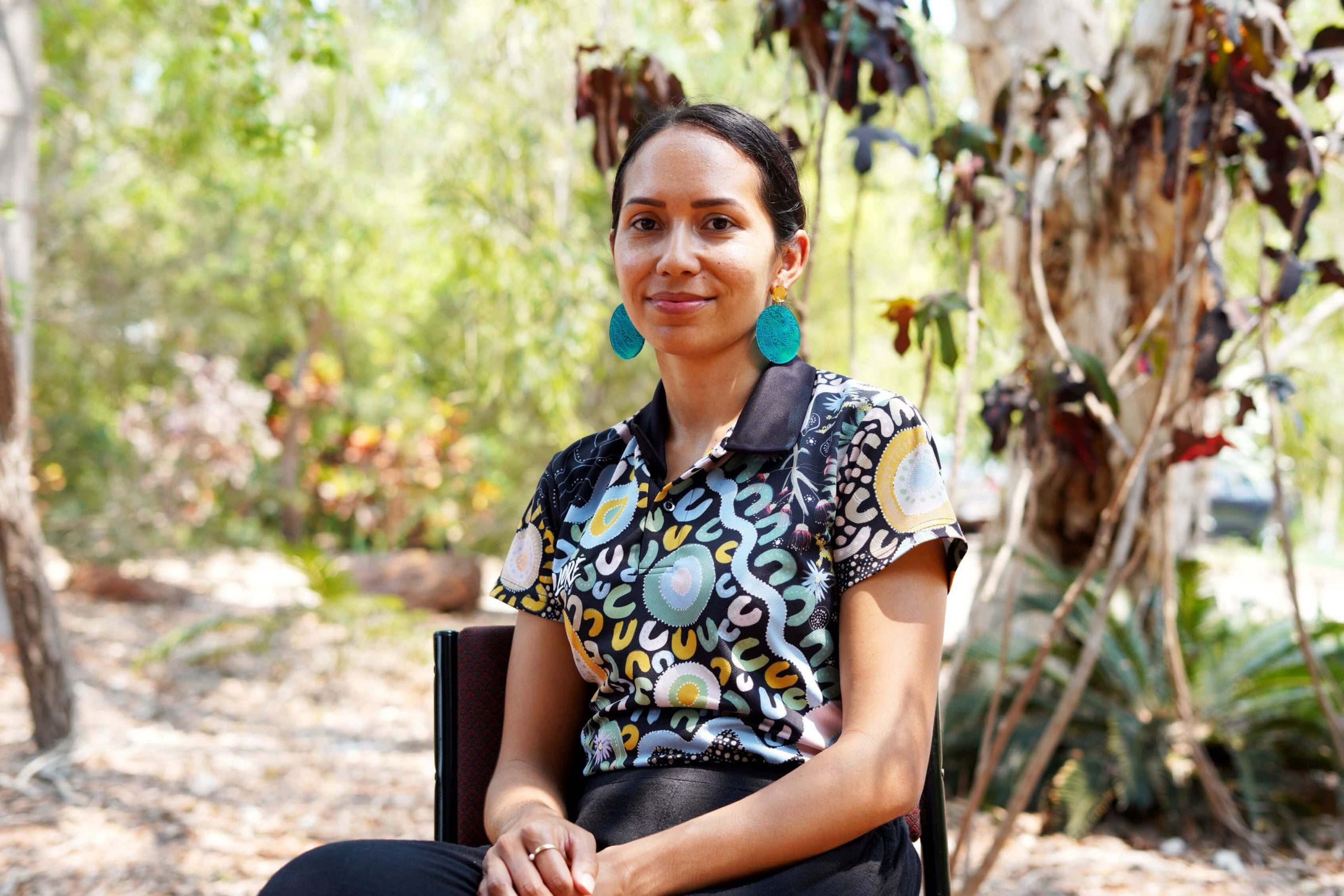“My name is Katina Coffin and I’m a Yawuru woman.”
“I think my passion is just health in itself … When you think about health, we’re not only talking about, like, physical health, we’re talking about mental health, our social and emotional wellbeing, like our spiritual health.”
“My job is that I deliver a lot of sexual health education to young girls. I think it’s really important, especially just knowing about our reproductive health … A lot of other important information that we go over too is about relationships and around consent, and that’s really important.”
- Katina Coffin is a Yawuru woman who delivers sexual health education to girls
- Oxfam partners with the Kimberley Aboriginal Women’s Council to work towards gender equality for women and girls in the Kimberley region
- Katina attended a KAWC roundtable in 2023, where she connected with other First Nations women
“Women’s voices are really important”
“I’m very lucky that I grew up with a lot of women. My mum, she’s one of eight sisters and she’s got two brothers. So today, just realising, like how lucky I am to be surrounded with so many women. You know, we don’t refer to them as our aunties, they’re like other mothers as well.”
“Women’s voices are really important. Me as a mother, I have the first say of what even goes into my bodies in making this child. Women are really special, that we get to bring children into this world. We get to guide them and support them.”
“Something I learned from the roundtable which really stood in my mind from yesterday’s talk was that you need to speak up for yourself, because if you don’t speak up for yourself, then someone else is going to speak on your behalf, and that might not necessarily be what you want voiced. So, if we’ve got a voice, we’ve got to use it.”
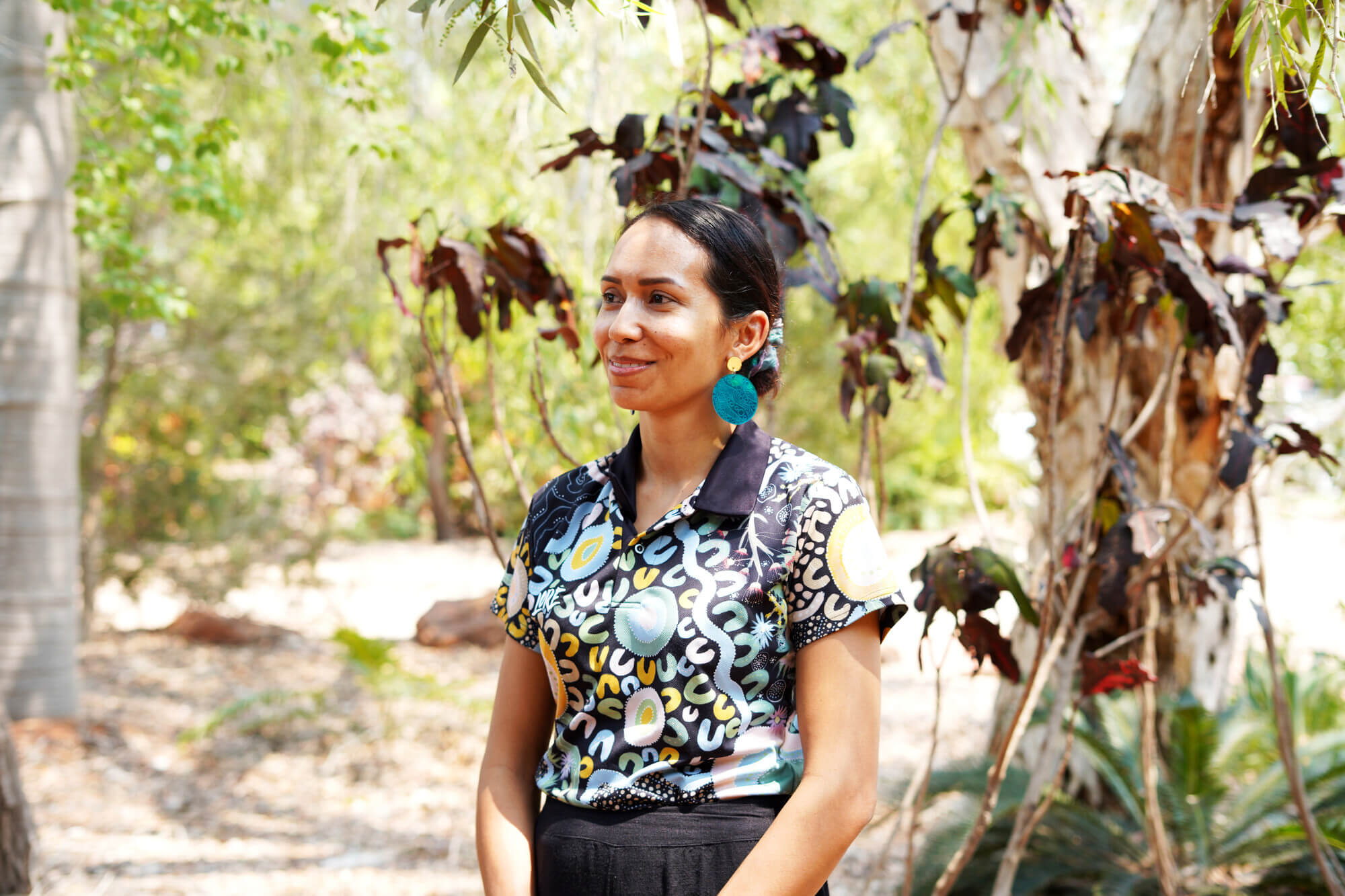
First Peoples’ justice and poverty
Despite 65,000 years caring for People and Country, the First Peoples of Australia, are too often excluded from the resources of their own country.
This is particularly true of First Nations women, who often face inequality and discrimination because of their gender. This double discrimination can worsen inequality, limit economic opportunities, increase the risk of gender-based violence and fuel poverty.
Katina, Oxfam and you
Oxfam Australia and the Kimberley Aboriginal Women’s Council — supported by people like you — are working together to promote gender equality for women and girls in the Kimberly region. In 2023, the Council hosted a roundtable to bring together women like Katina from across the Kimberly region to share stories, experiences and plans for the future.
“Coming to the Kimberley Aboriginal Women’s Roundtable, I was excited to meet other women and I think just working in a service, it was good to just chat with others and see what gaps and barriers they had, but also just to see what they were doing.”
“So, building that connection and being able to collaborate with the women all over the Kimberley and having women come from interstate as well, I think that’s just important — women coming together.”
“What I love about my culture is, you know, it’s my identity. I know I’m Yawuru, I know I come from Saltwater Country. I know what foods are in season when we go hunting or gathering, getting oysters. Stingray is my favourite. Yeah, I just love that.”
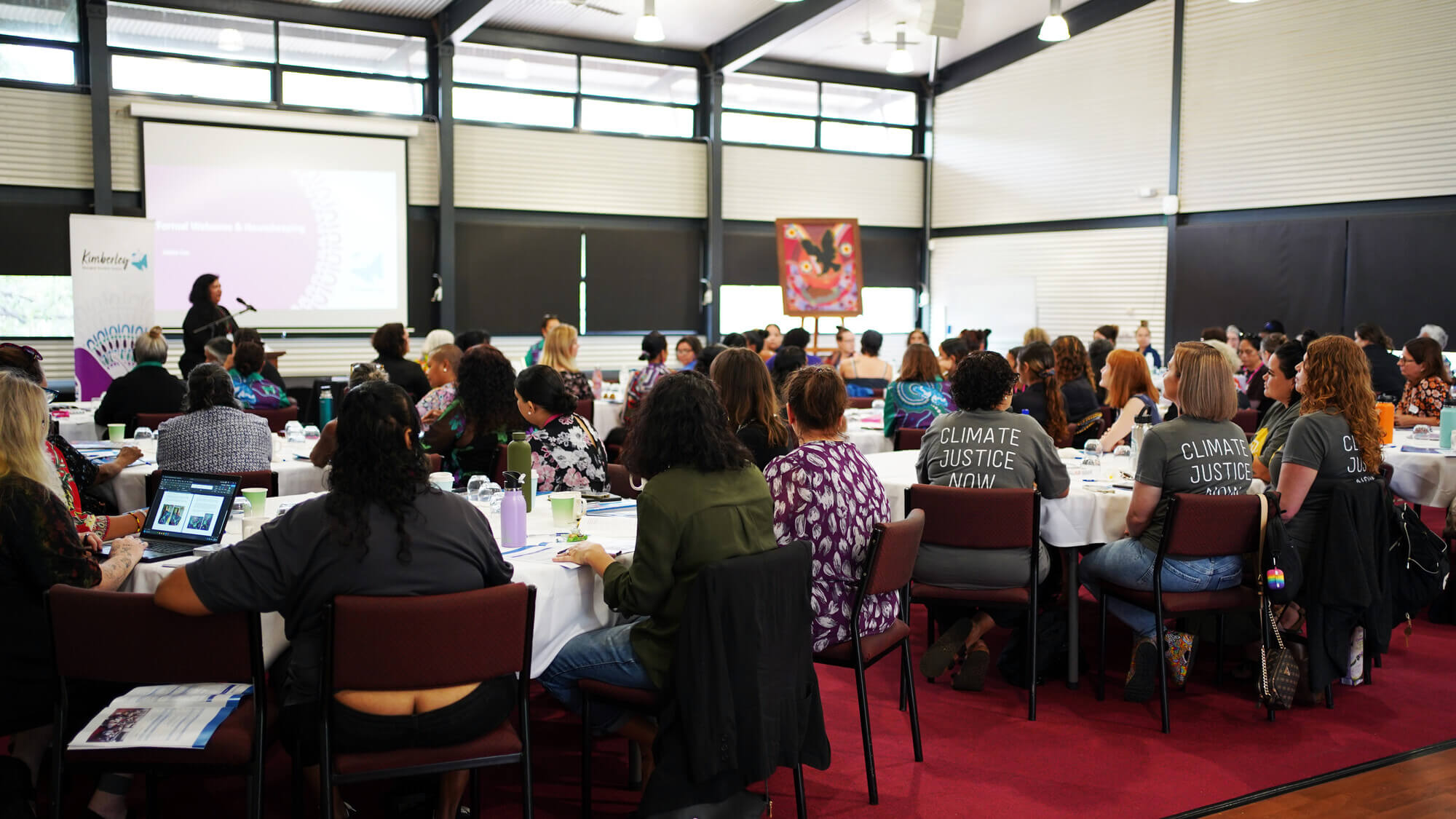
“Women are bringing up other women now”
“We’re resilient and we’ll just keep going. Just the fact that our culture and our roles and responsibilities within our culture, especially being like a mum, you’re not only caring after your own children. You’ve got the responsibility of caring after everyone else’s kids within your family too.”
“You know, just being brought up on Country and learning these things and then passing it on to the kids and you know that’s the way that you interact with your kids, just teaching them the same things that you’ve been brought up doing.”
“I just love that you can feel the shift … women are bringing up other women now.”
This work is only possible with support from people like you. Learn more about how you’re helping us alleviate poverty through our First Peoples justice work.
Read more stories
From supporting First Peoples to thrive and providing humanitarian aid to advocating for climate justice, gender equality and better livelihoods, here’s how we’re working towards a world without poverty.
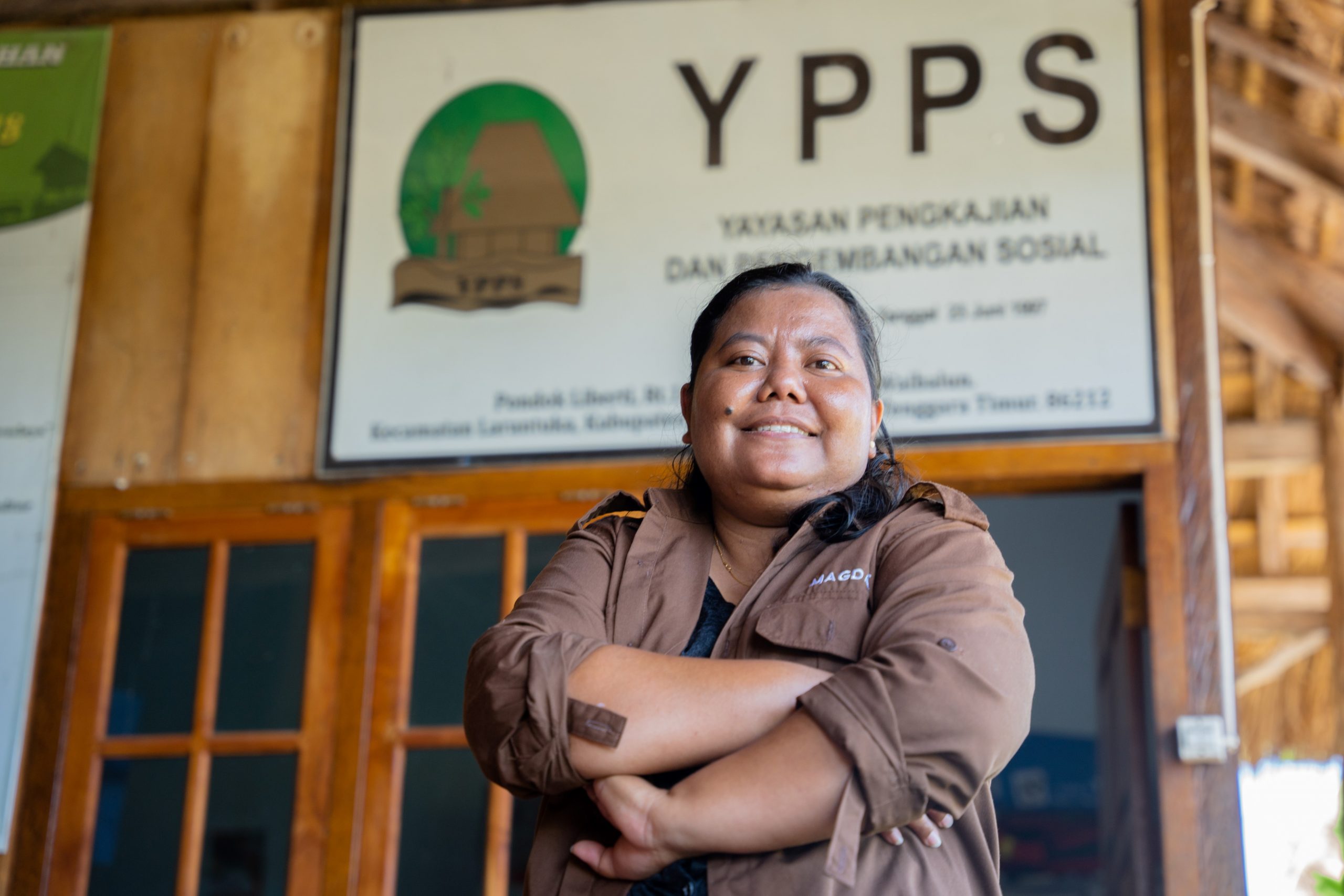
Madga’s story
“I’m a project manager in Larantuka (Indonesia) working on a Climate and Disaster Resilient Communities project with Oxfam. We mostly focus on climate problems and drought.”
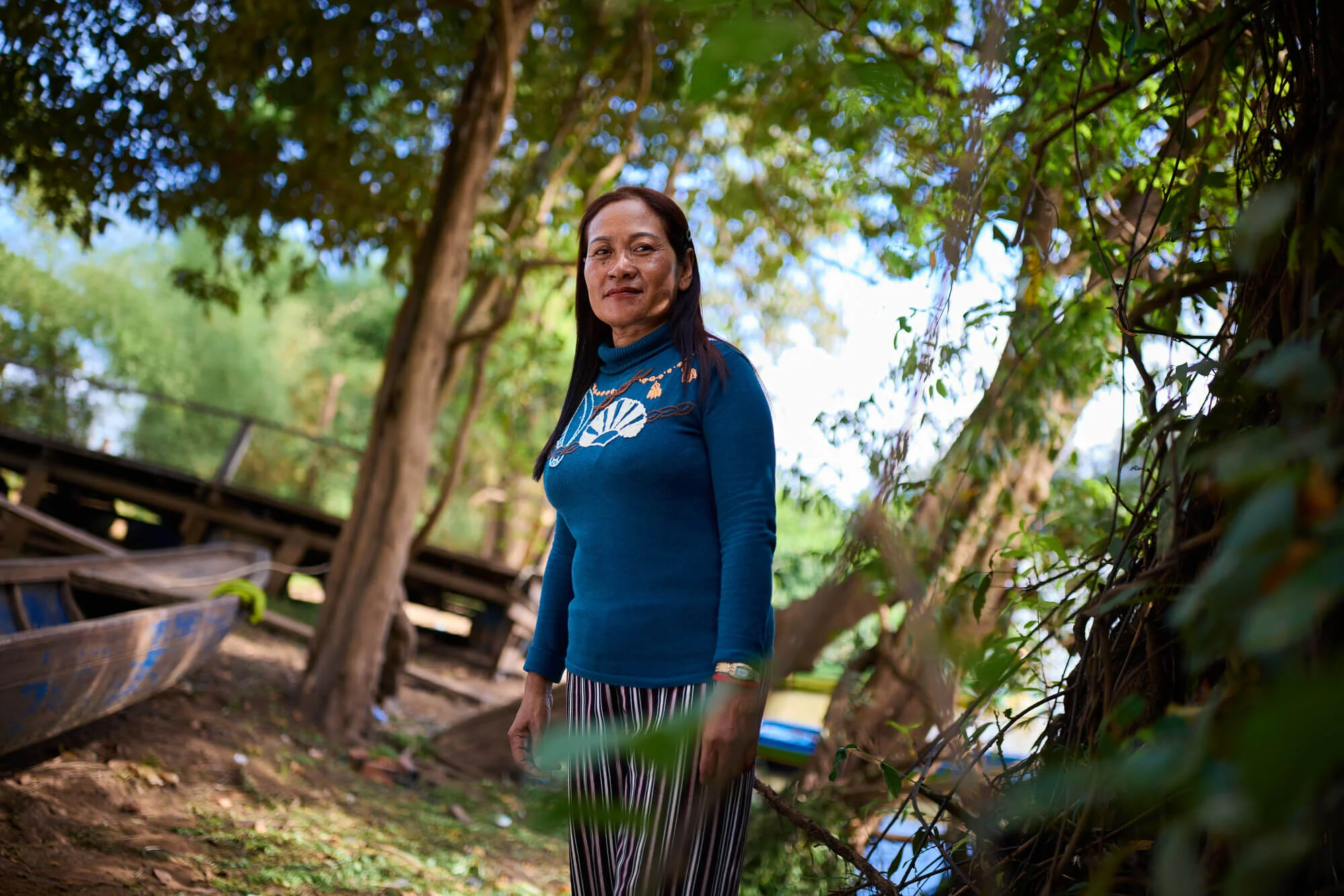
Siphon’s story
“My name is Siphon. From 2017, I worked as a volunteer in the community fishery management committee. I want to protect natural resources both in the water and on land… I gather for patrolling in this lake, and sometimes in the river.”
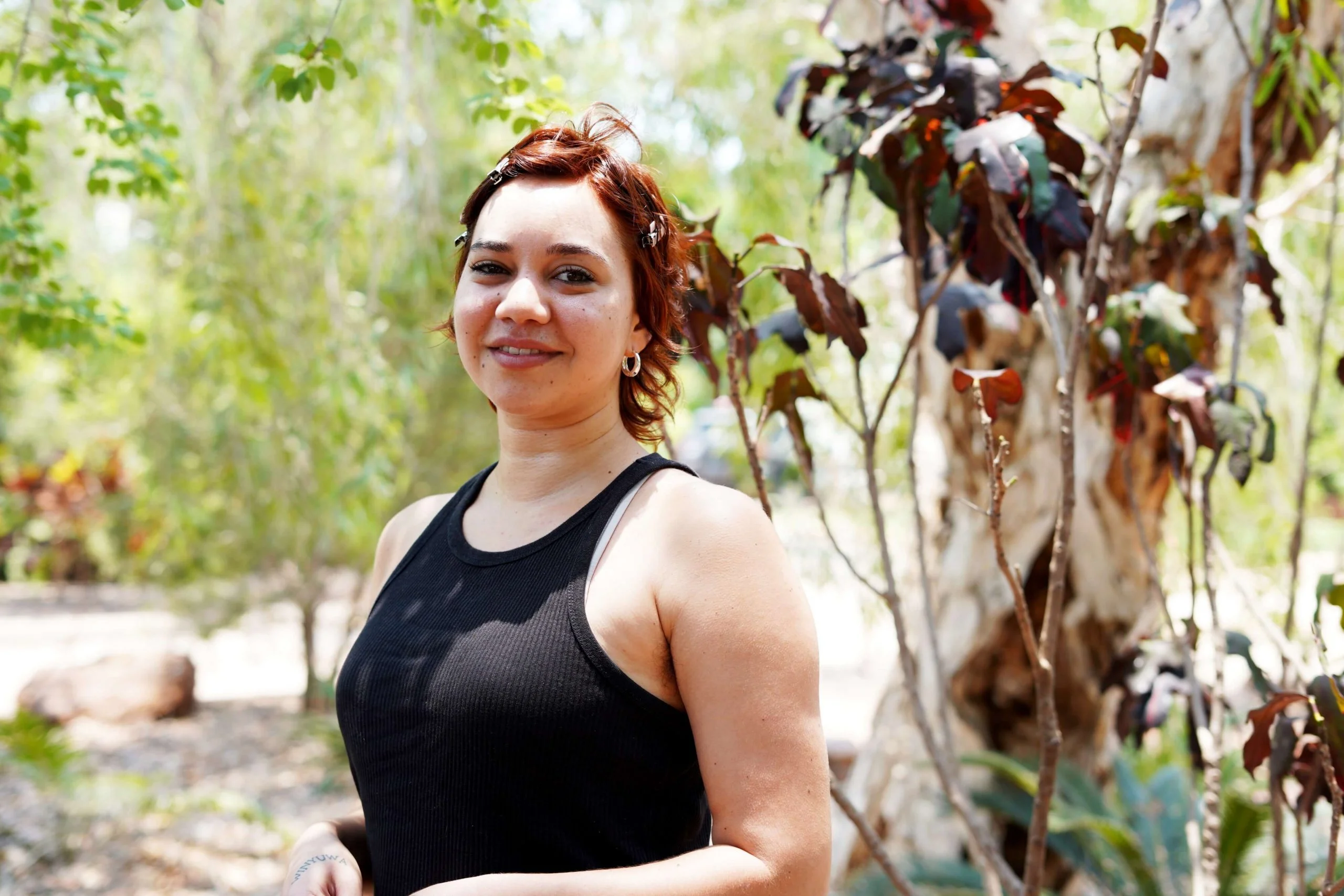
Obby’s story
“I am a Bunuba-speaking Miluwindi-clan woman from Fitzroy crossing. I grew up there, left for school, and now I’m back living there. I wanted to come back and learn my language and my culture properly.”
